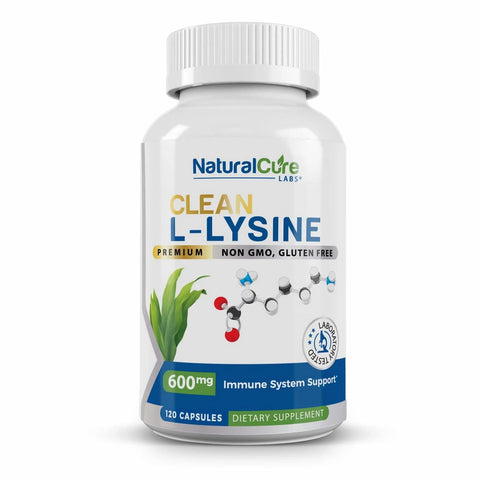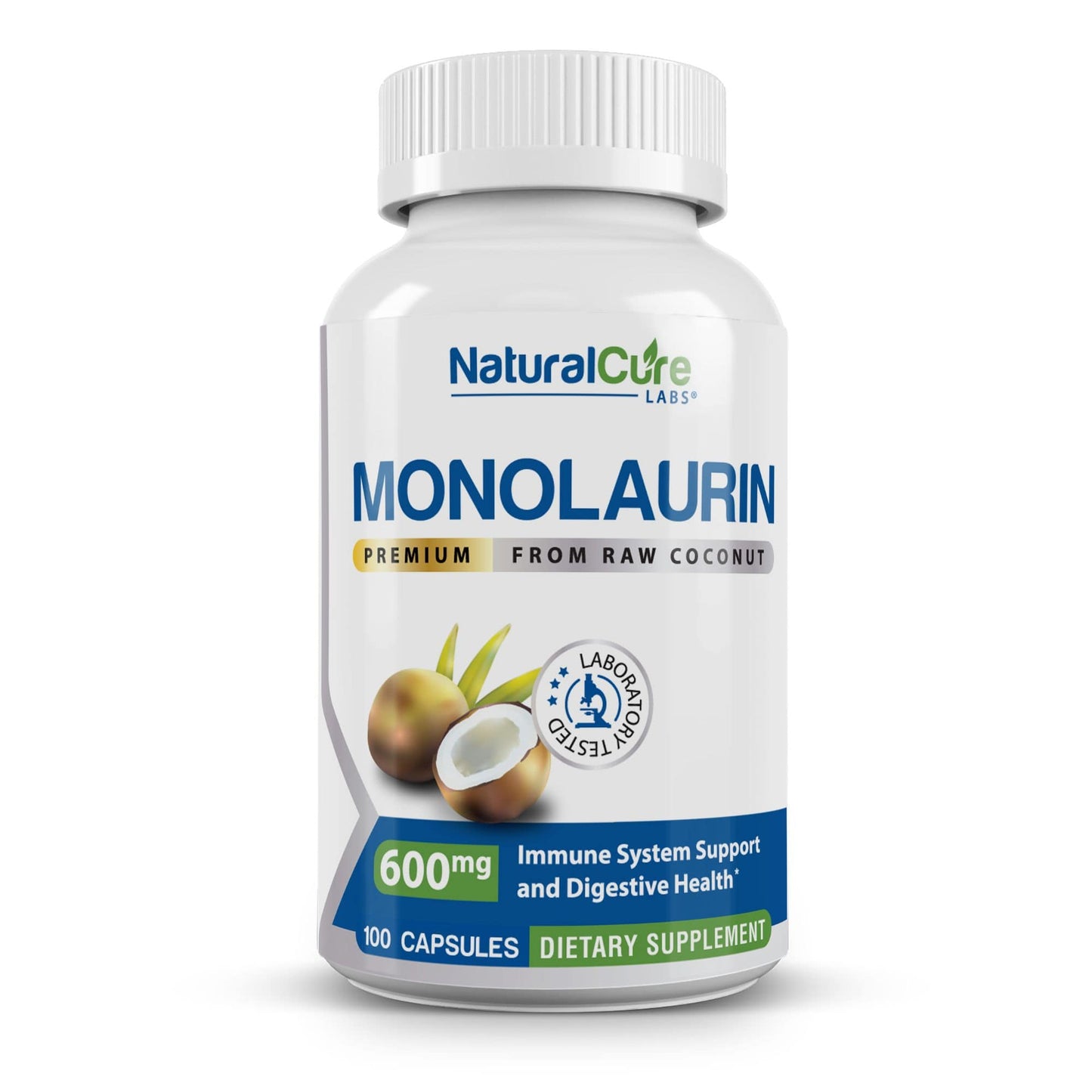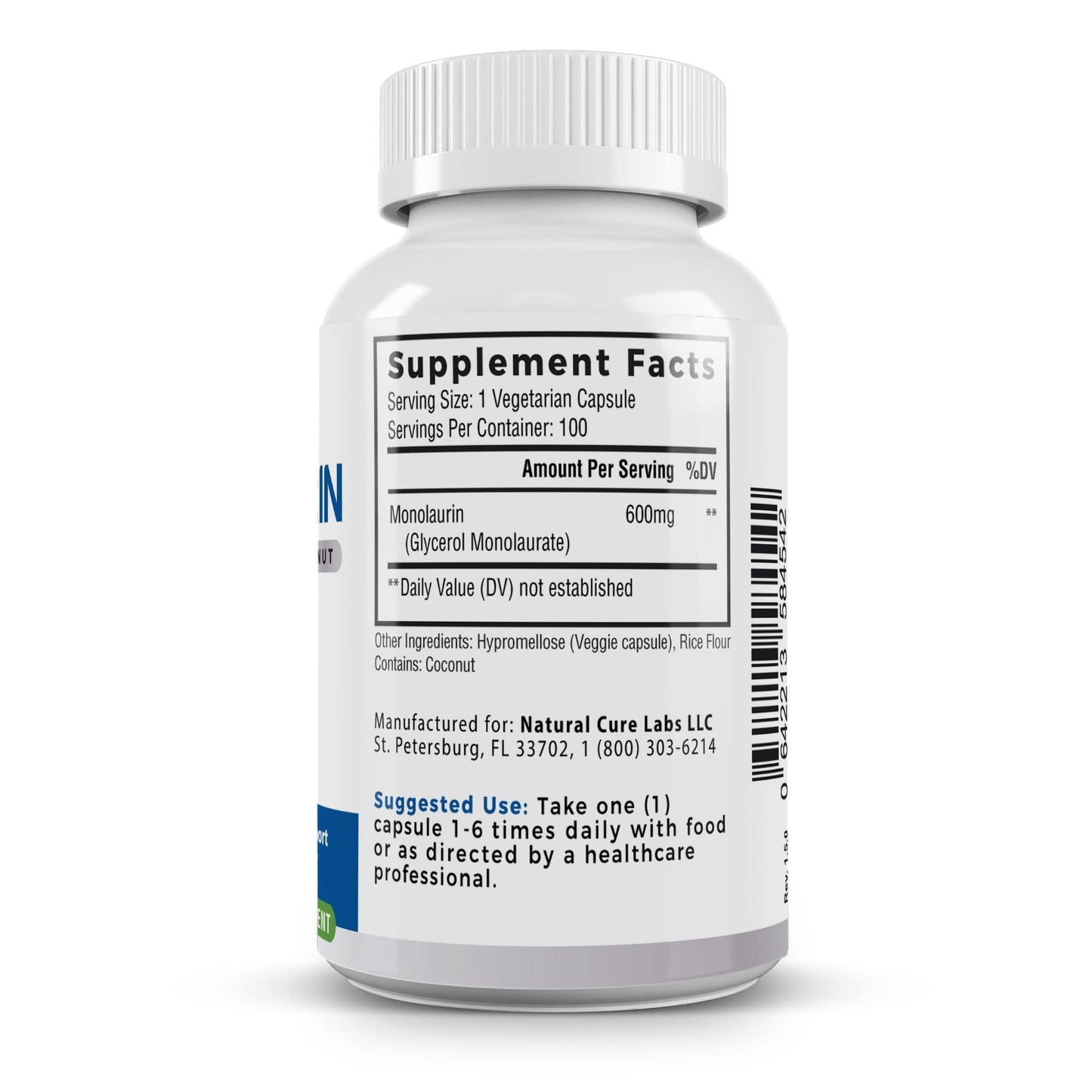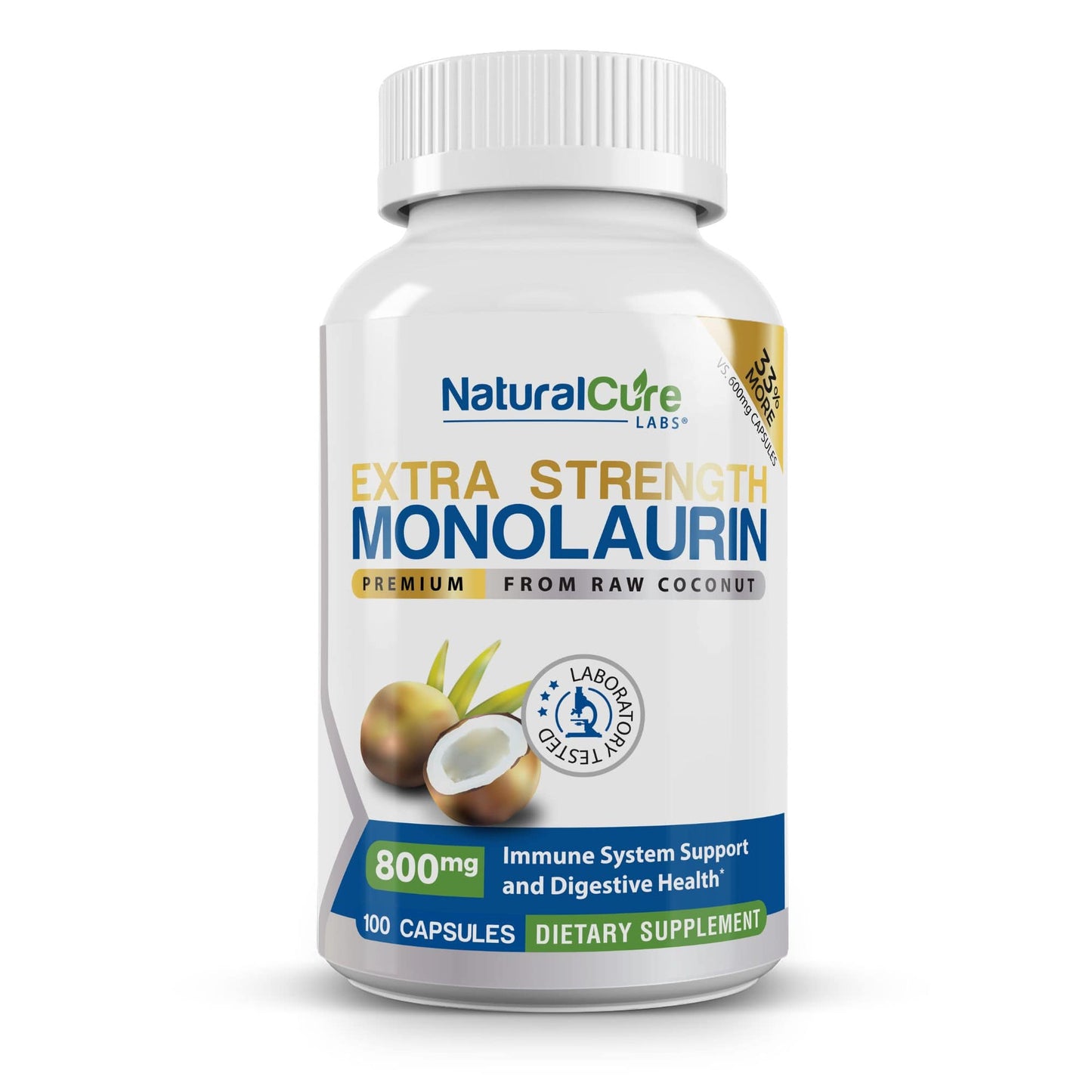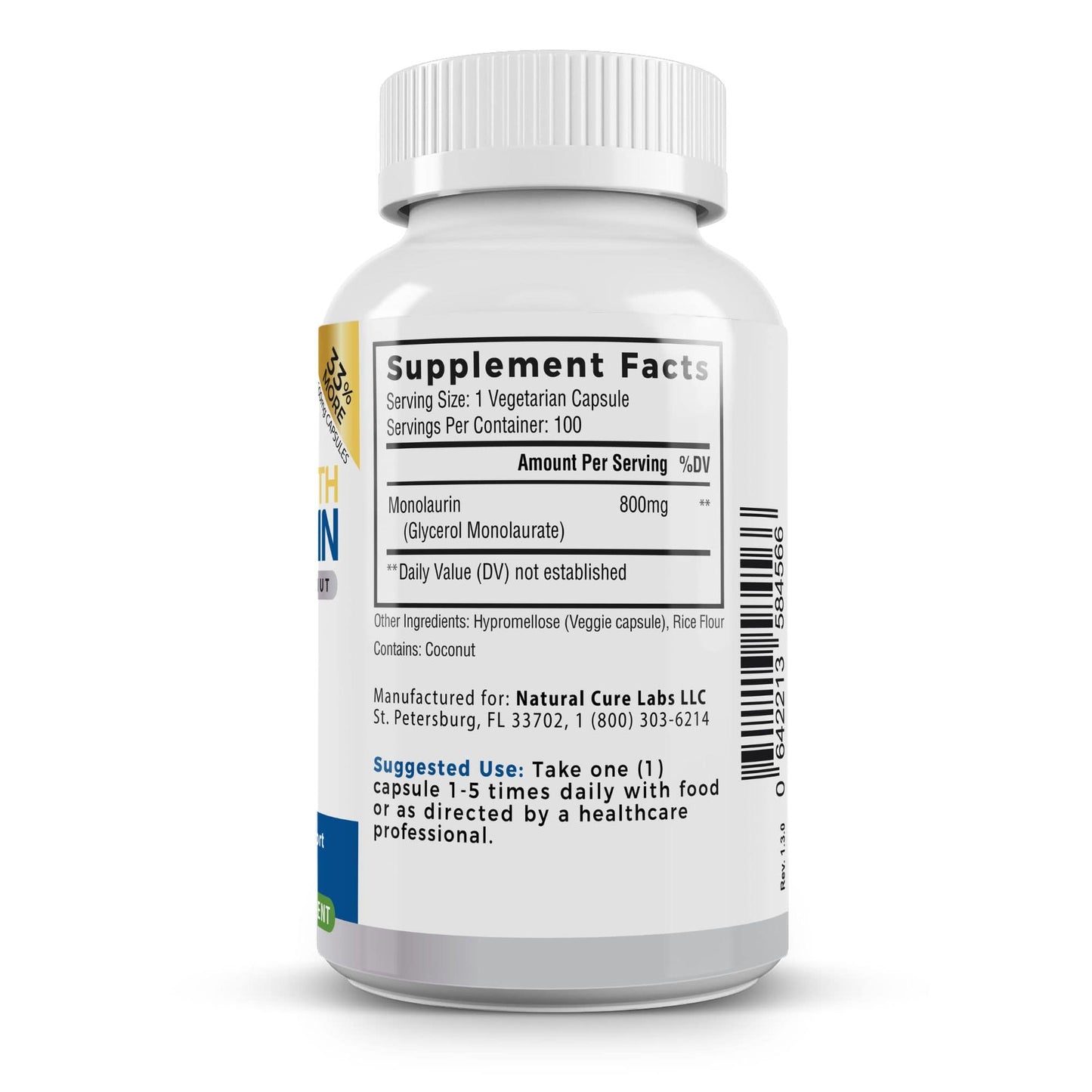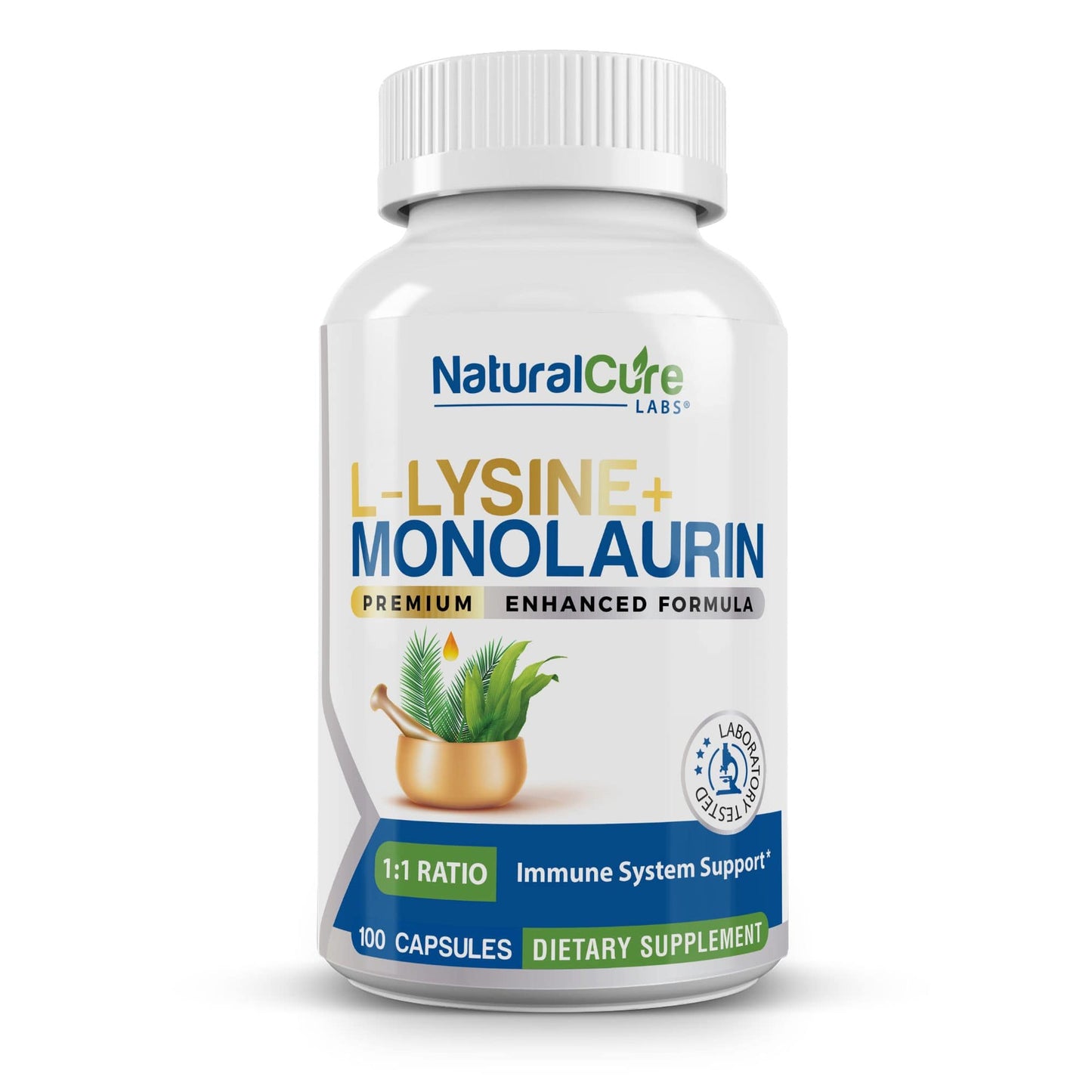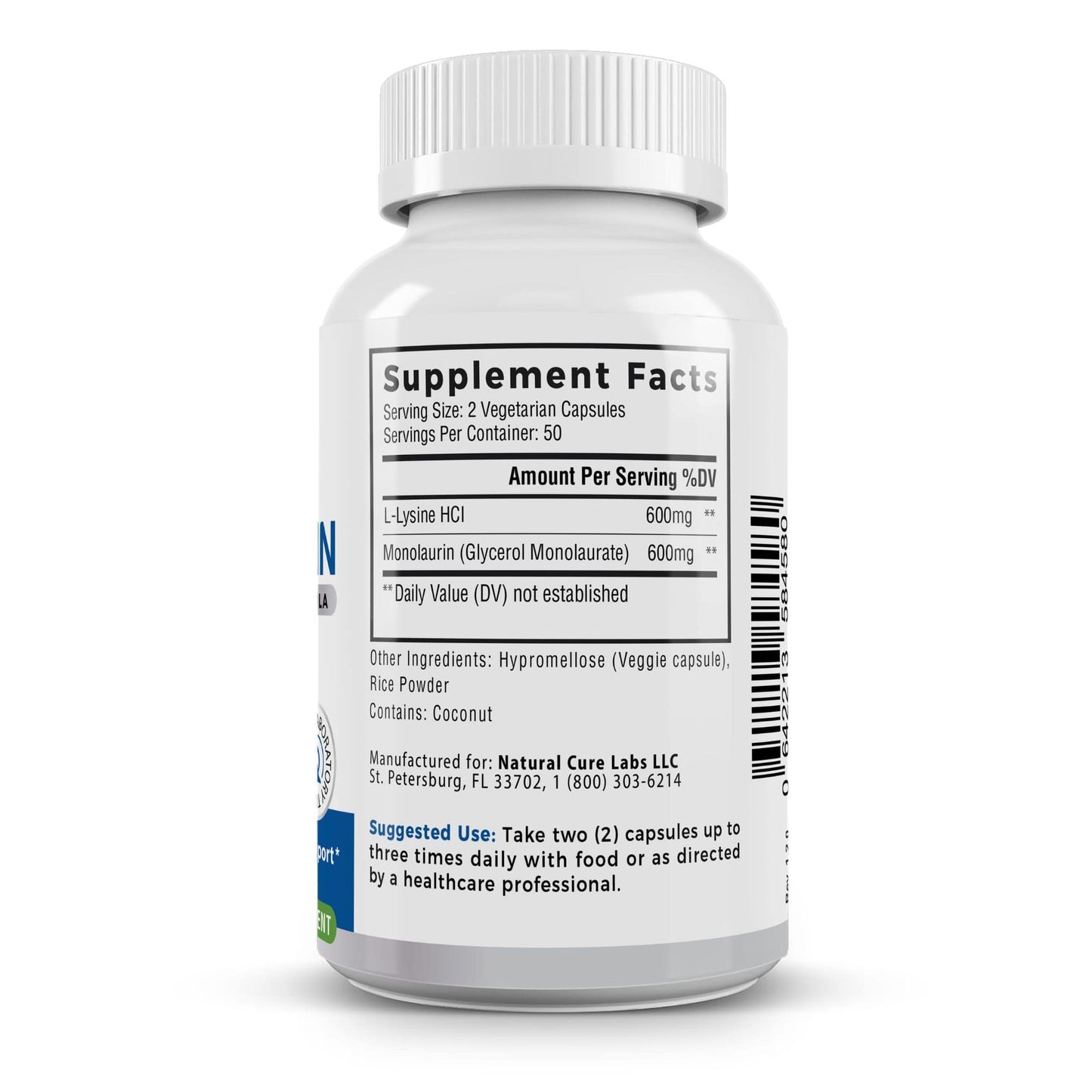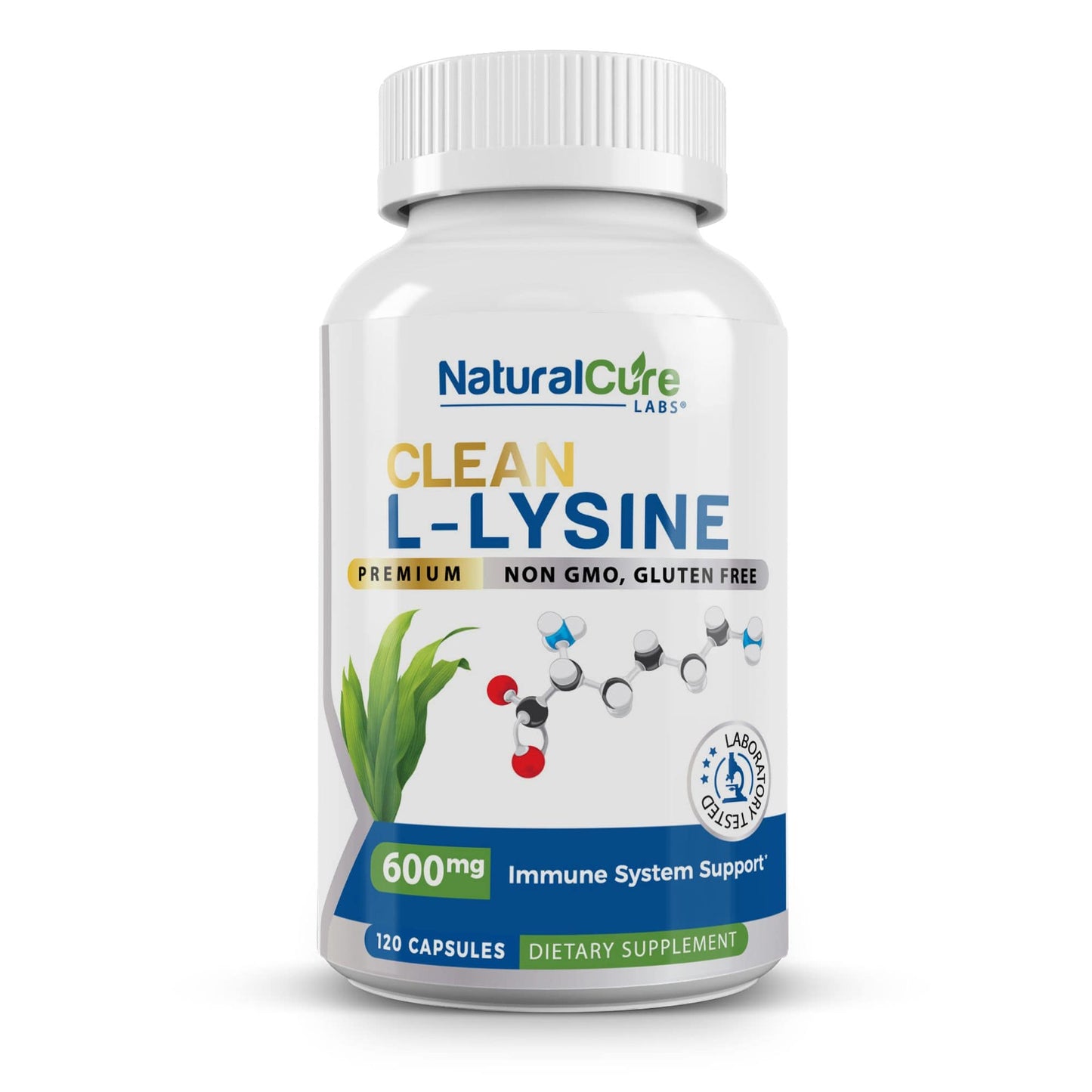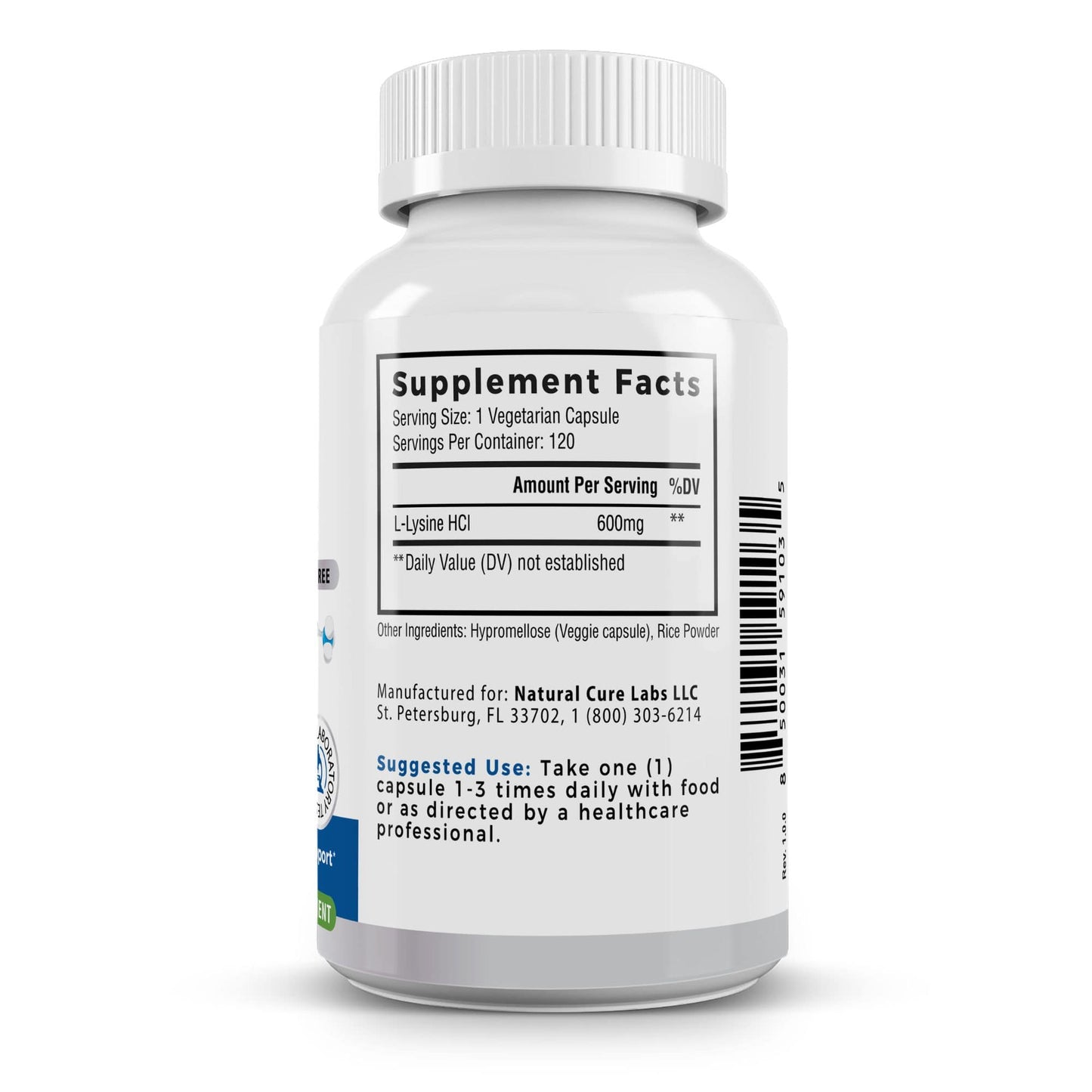
🔍 Last updated April 8, 2024
📚 8 citations
📖 6 minute read
About the Author:

Dr. Patricia Shelton, MD, has been a medical communicator and educator since 2014. She holds a Doctor of Medicine degree and a Bachelor's degree in Neuroscience, both from the University of Washington in Seattle.
--
Lysine is an amino acid with an impressive range of health benefits. Though your body cannot synthesize it on its own, these protein building blocks are essential for growth and development.
Jump To:
From promoting collagen production to assisting in the body's absorption of calcium, L-lysine plays a significant role in tissue growth and much more. ¹ ² Whether you take immune-supporting supplements or simply eat a well-rounded diet, it's important to get enough lysine. ³
Keep reading, and we'll share all there is to know about lysine and what it can do for your body.
See Related: What Can Tattoos Do To Your Immune System?
What is L-Lysine?
Lysine is an essential amino acid that acts as a building block for your body's proteins. However, the human body cannot make lysine on its own. Given that your body can't produce this essential amino acid, it's important to obtain enough through a well-rounded diet or immune support supplements like Natural Cure Labs' Clean L-Lysine capsules. ¹ ‡
What makes our L-lysine “clean” is the absence of synthetic fillers, preservatives, colorants, or flavors. It contains only one active ingredient, L-lysine HCL, and two inactive ingredients: a veggie capsule and a small amount of organic rice powder to help ensure a uniform fill. It’s literally the “cleanest” label product we could design. ‡
These lysine supplements are made in the USA and are rigorously third-party tested. With 600mg of L-lysine per serving, these premium capsules deliver a vegan, non-GMO, and gluten-free option that is easy to swallow and without any extras. ‡
Bonus: The Adaptive Immune System: An Overview
Getting enough lysine is essential, whether you get it from foods or a dietary supplement. There are two chemical versions of lysine: D-lysine and L-lysine. L-lysine is the bioactive form of lysine present in many protein-rich foods and health supplements.
Most essential amino acids are stereoisomers, meaning that they exist in two mirrored variations. This is what the D and L refer to. L-lysine is the biologically active version which is used in protein synthesis, and is often referred to as simply "lysine." ⁴ By contrast, D-lysine is biologically inactive.
Health Benefits of Lysine
Amino acids like L-lysine are organic compounds responsible for forming proteins. Of the 20 different amino acids your body needs, lysine is one of the nine essential amino acids.³ Your body heavily relies on essential amino acids to function because they’re necessary for synthesizing proteins. Lysine is used to make proteins that are involved in a variety of processes throughout the body, including maintaining connective tissue, calcium absorption, and hormone and enzyme production. ⁴ In addition, the attachment or removal of lysine from specific proteins is important for epigenetics, meaning that it affects which genes will be expressed and which will remain dormant. ⁹
Lysine is essential for normal growth and muscle mass turnover. It is also used to form carnitine, a quaternary ammonium compound derived from either the lysine or methionine amino acids. Often found in red meats and dairy products, carnitine is essential for energy production. ⁵ Lysine also helps to transport fats throughout your body in order to be burned for energy. ⁶

Lysine is primarily used for the following functions: ⁴
- Tissue growth and tissue repair
- Collagen production and collagen formation
- Calcium absorption
- Antibody, hormone, and enzyme production
Lysine can also help produce immune cells, which is essential for overall health.
This helps encourage proper growth, promote wound healing ⁷, relieve stress, and increase muscle mass. Some research even suggests that lysine can aid in your body's absorption of calcium and could prevent bone loss associated with osteoporosis. ²
Sources of Lysine
Lysine is critical for overall health, though your body isn't able to produce it on its own. Because of this, it's necessary to get the recommended amount of lysine from your diet daily.
Foods
This amino acid is often found in protein-rich foods like meat and dairy products. Specifically, you can find high concentrations of lysine in foods like pork, poultry, beef, cheese, fish, and eggs. However, those who follow a vegan diet might have difficulties getting enough lysine through a food-first approach. Plant-based sources of lysine include beans, wheat germ, lentils, certain nuts, and soy.

Lysine Supplements
It can be challenging to give your body the nourishment it needs through food alone. That's why enhancing your daily diet with lysine supplements may be a good choice. ‡
When taking lysine supplements, you should pick products that have been quality tested by an independent organization. It is also ideal to opt for formulas that are free from synthetic fillers or preservatives. When in doubt, buy supplements crafted with premium botanicals and other natural ingredients. ‡
Our Clean L-Lysine is a non-GMO, gluten-free blend that does not contain magnesium stearate or silicon dioxide. It's a pure mix designed to promote good health from the inside out. When taken with monolaurin, like our Premium Monolaurin capsules, it may even help support immune function and digestive health. ‡
Final Thoughts
Research surrounding lysine is ever-evolving, with recent studies showcasing the many benefits of this essential amino acid. ⁸ Whether you take a daily lysine supplement or eat a diet full of meat, dairy, or other lysine-rich foods, getting enough lysine can help support good health. ‡
Keep Reading: Signs Of A Strong Immune System (& 6 Ways To Help It Thrive)
--
References
- Frey, J., & Raby, N. (1991). Lysine et collagène [Lysine and collagen]. Annales de biologie clinique, 49(1), 36–39.
- Civitelli, R., Villareal, D. T., Agnusdei, D., Nardi, P., Avioli, L. V., & Gennari, C. (1992). Dietary L-lysine and calcium metabolism in humans. Nutrition (Burbank, Los Angeles County, Calif.), 8(6), 400–405.
- Lopez, M. J., & Mohiuddin, S. S. (2023). Biochemistry, Essential Amino Acids. In StatPearls. StatPearls Publishing.
- National Center for Biotechnology Information (2024). PubChem Compound Summary for CID 5962, Lysine. Retrieved March 27, 2024 from https://pubchem.ncbi.nlm.nih.gov/compound/Lysine.
- National Institutes of Health (2023). Carnitine Fact Sheet for Health Professionals. Retrieved March 27, 2024 from https://ods.od.nih.gov/factsheets/Carnitine-HealthProfessional/.
- Dahash BA, Sankararaman S. Carnitine Deficiency. [Updated 2023 Aug 7]. In: StatPearls [Internet]. Treasure Island (FL): StatPearls Publishing; 2024 Jan-. Available from: https://www.ncbi.nlm.nih.gov/books/NBK559041/
- Spallotta, F., Cencioni, C., Straino, S., Sbardella, G., Castellano, S., Capogrossi, M. C., Martelli, F., & Gaetano, C. (2013). Enhancement of lysine acetylation accelerates wound repair. Communicative & integrative biology, 6(5), e25466. https://doi.org/10.4161/cib.25466
- Manzano, M., Girón, M. D., Salto, R., Burgio, C., Reinoso, A., Cabrera, E., Rueda, R., & López-Pedrosa, J. M. (2023). Arginine and Lysine Supplementation Potentiates the Beneficial β-Hydroxy ß-Methyl Butyrate (HMB) Effects on Skeletal Muscle in a Rat Model of Diabetes. Nutrients, 15(22), 4706. https://doi.org/10.3390/nu15224706
- Dambacher, S., Hahn, M., Schotta, G. (2010). Epigenetic regulation of development by histone lysine methylation. Heredity 2010 Jul;105(1):24-37. doi: 10.1038/hdy.2010.49.
‡ These statements have not been evaluated by the Food and Drug Administration. This product is not intended to diagnose, treat, cure, or prevent any disease.
--
Natural Cure Labs provides dietary supplements made from naturally derived ingredients. Our research-backed products contain premium botanicals and antioxidants that encourage healthy living and holistic wellness. Each high-quality product comes with a Clean Label that certifies our commitment to quality, transparency, and research. To stay connected and learn more, follow us on Facebook, Instagram, and TikTok.

